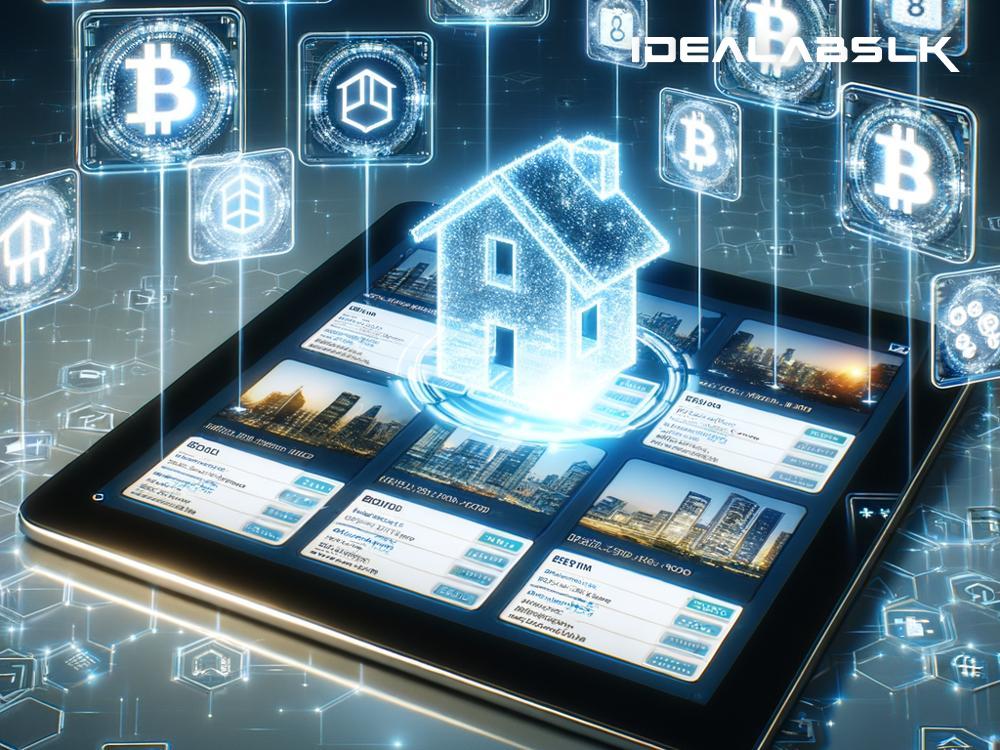How Blockchain is Transforming Digital Property Listings: A Simple Guide
In the rapidly evolving digital world, blockchain technology is not just a buzzword anymore; it's a revolutionary force, especially in the realm of digital property listings. But what exactly is blockchain, and how is it making a stir in online property markets? Let's dive into this topic in a way that's easy to understand, no matter your tech-savvy level.
Understanding Blockchain Basics
Imagine a huge, digital ledger that is open for everyone to see, but no single person owns it. This ledger records transactions in blocks, and when a block is full, it's chained to the previous one, creating a long history of transactions that's nearly impossible to tamper with. That, in essence, is what blockchain is - a secure, transparent, and decentralized way of recording data.
The Traditional Challenges in Digital Property Listings
Traditionally, listing and purchasing property online can be fraught with hurdles. There's the risk of fraudulent listings, difficulty in verifying ownership, and a lack of transparency in transactions. Another concern has been the centralized nature of listings, where a few platforms control much of the market, potentially leading to manipulation or bias.
Enter Blockchain: A New Hope
Blockchain technology offers compelling solutions to these issues, revolutionizing how we list and transact real estate online. Here's how:
1. Enhanced Security
Since blockchain records are decentralized and secured through cryptography, tampering with transaction history is virtually impossible. This drastically reduces the risk of fraud in digital property listings, providing peace of mind for both buyers and sellers.
2. Improved Transparency
With each transaction recorded on a blockchain, all parties can see the history of a property, from initial listing to every single inquiry and transaction it has been through. This level of transparency builds trust among users, making the process of buying or renting property online much more straightforward and reliable.
3. Verifiable Ownership
Blockchain makes verifying the ownership of a property simpler and more efficient. Since the history of transactions is immutable and readily available, confirming the current legal owner of a property becomes a quick, hassle-free process. This eradicates a significant chunk of the legwork traditionally involved in property transactions.
4. Decentralization
One of blockchain's core features is its decentralized nature. This means that there's no single point of control or failure, making the system more robust and fair. In the context of property listings, this translates to a more open marketplace, where listings aren't controlled by a handful of platforms but are instead accessible on a global, transparent network.
5. Smart Contracts
Possibly one of the most exciting applications of blockchain in digital property listings is the use of smart contracts. These are self-executing contracts with the terms of the agreement written into code. For example, once certain conditions are met, like a payment being received, the ownership of the property could automatically transfer to the buyer without the need for traditional, paper-heavy processes. This not only speeds up transactions but also reduces the potential for human error.
Real-World Examples and Future Potential
Several startups and even established real estate platforms are beginning to explore blockchain for digital property listings. Some are creating global property marketplaces on the blockchain, while others focus on specific aspects like title transfers or investment properties. The potential is vast, and as technology matures, we're likely to see even more innovative applications, making property transactions more seamless and accessible than ever before.
Conclusion
The intersection of blockchain technology and digital property listings is more than just a trend; it's a glimpse into a future where buying, selling, or renting properties online is faster, more secure, and transparent. By simplifying processes, enhancing security, and democratizing access, blockchain is set to transform the digital real estate landscape. As we move forward, embracing these changes and understanding the technology will be key to navigating the future of property listings in the digital age. Whether you're a property owner, a potential buyer, or simply fascinated by the impact of technology on traditional industries, the evolution of blockchain in digital property listings is something to watch closely.

